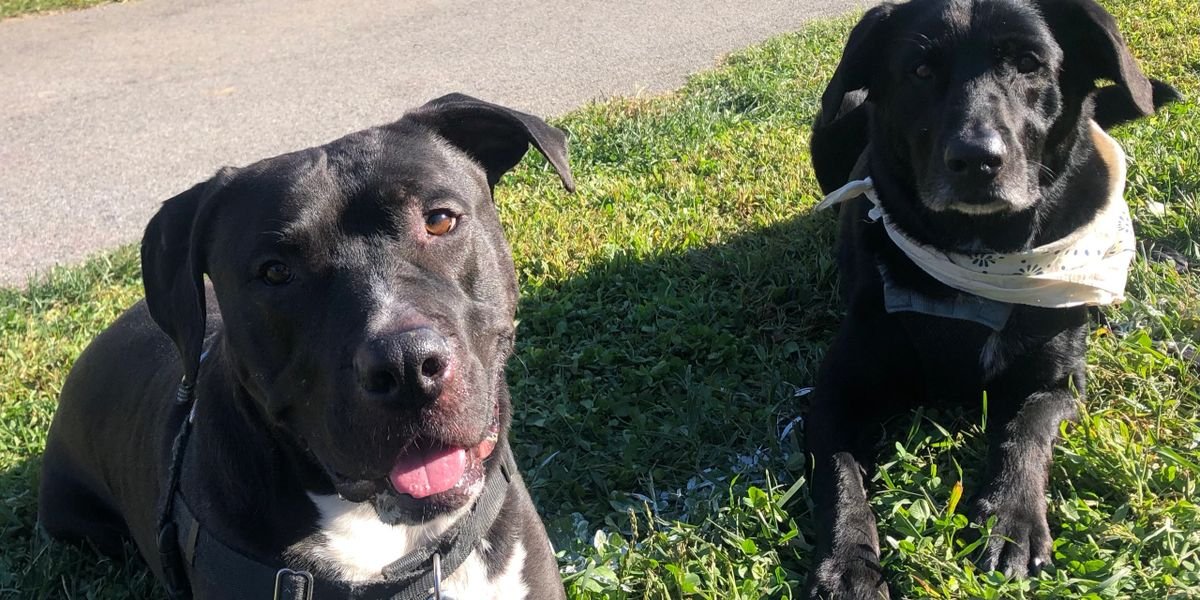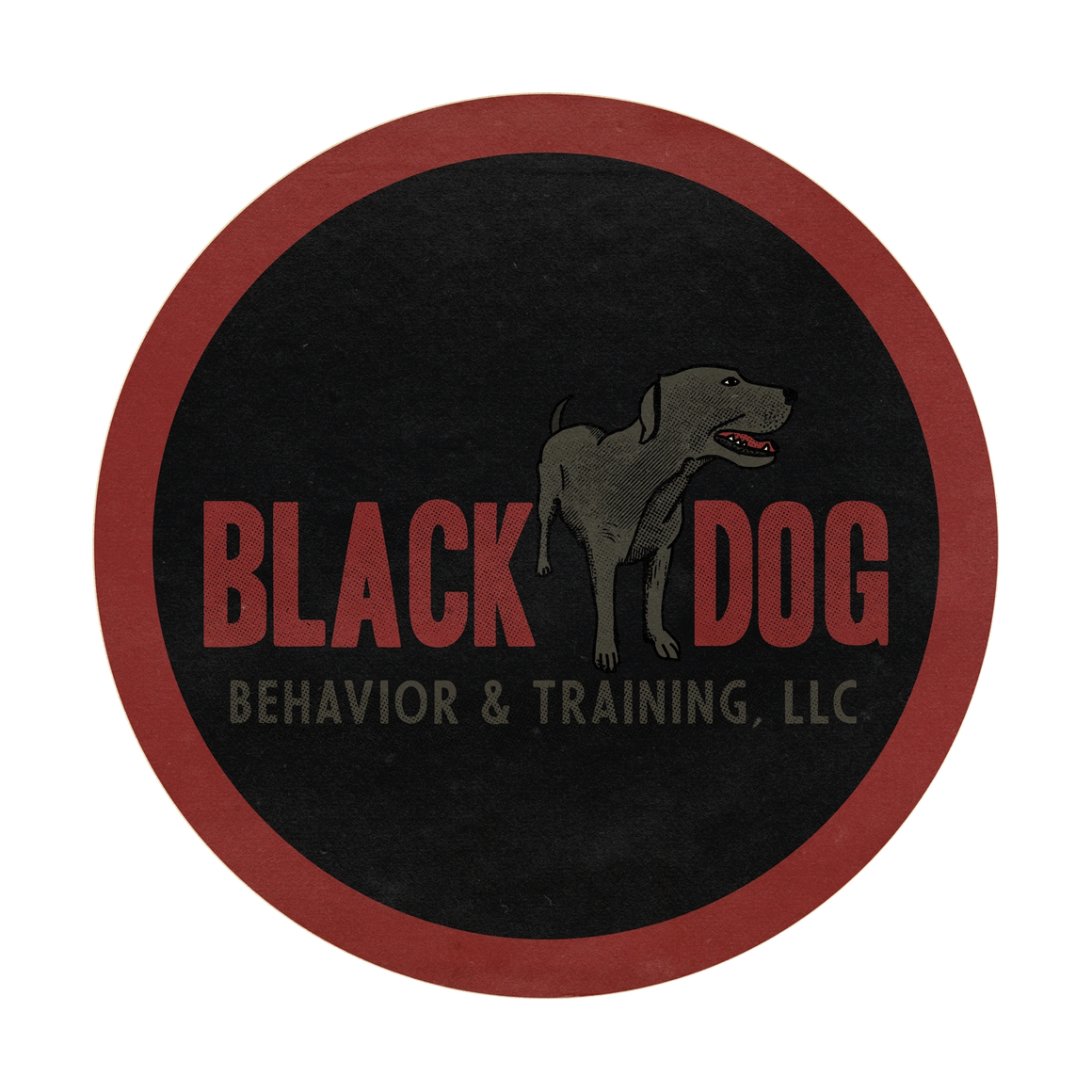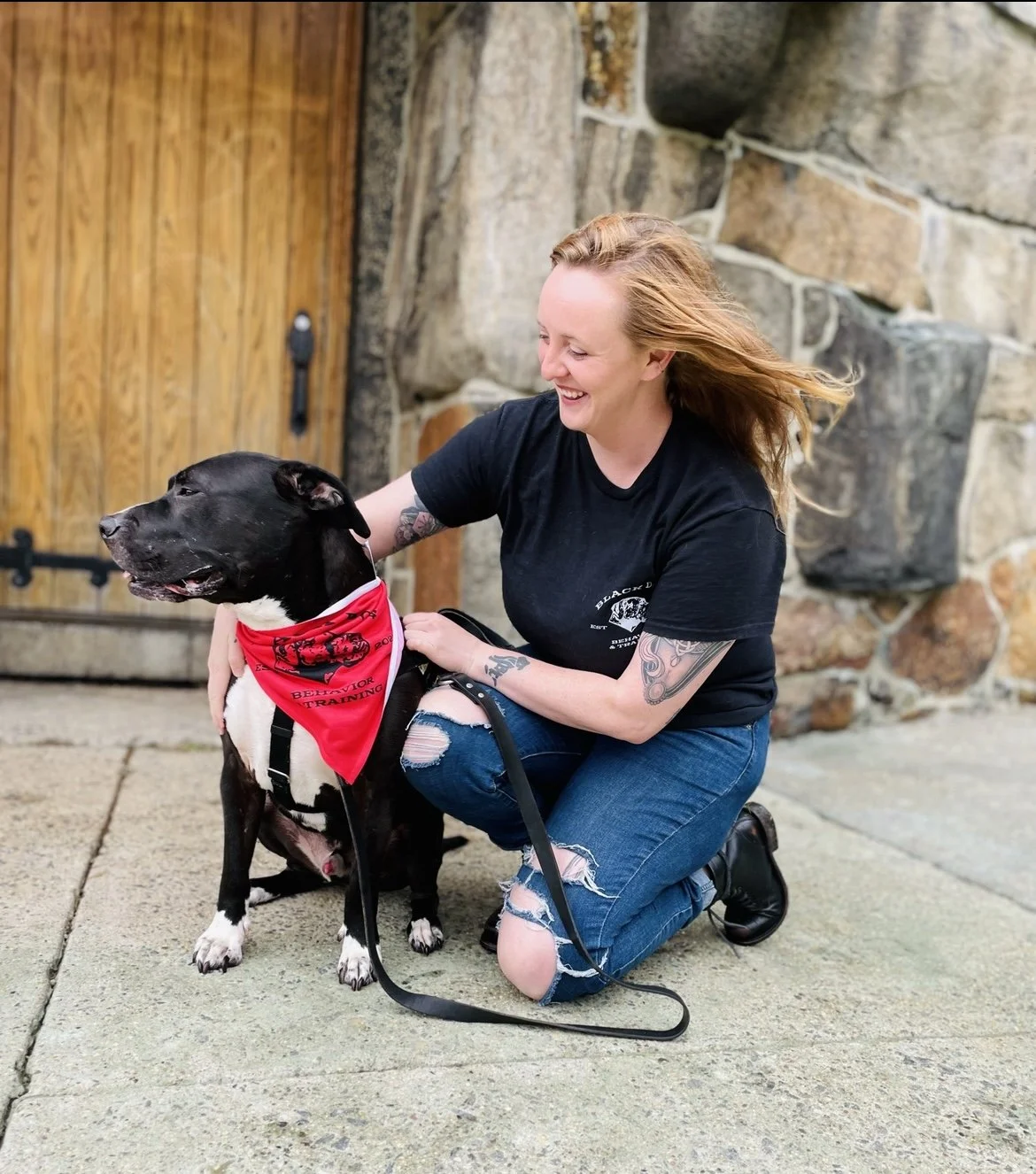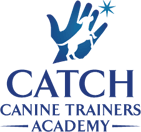Why BlackDog?
BlackDog Behavior and Training, LLC was built with the goal of being a safety net for our community - supporting longtime pet parents, new adopters, and local animal welfare organizations alike. We aim to promote community wellbeing through responsible dog guardianship, humane training techniques, and acting as an extension of our local shelter/rescue partners through a robust effort in pet retention (keeping animals in their homes by providing access to behavioral resources).
We prioritize a healthy quality of life for our clients, and promote this through a team of highly skilled, certified trainers. Our techniques are based on decades of behavioral science and new evidence supported by peer-reviewed studies in the field. We implement this mindset in our work with clients, and coach dog owners to employ this approach in their daily lives with their dogs. We are here to change the narrative around dog training, husbandry, and overall welfare - our goal is to re-educate away from misconceptions rooted in inaccurate and outdated methods, and erase the focus on training based on dominance, punishment, and pain. Instead, we operate with an overriding philosophy of compassion, treating living beings with respect, and leading without fear.
BlackDog is dedicated to our founder’s dog Opie, and all of the animals she has worked with throughout her career.
OPIE’S STORY
In the summer of 2015, the Washington Humane Society (now the Humane Rescue Alliance, open admissions animal shelter in Washington, D.C.) received a dispatch call about an injured stray dog, abandoned in an alley. Upon arrival, Animal Control Officers found the dog in dangerously poor condition - unconscious, severely underweight, with significant injuries to the head, neck, and front limbs (determined to be bites from another dog). At the time he was found, staff was unsure if he would survive due to the extent of his injuries. Thanks to a brief stay at an emergency hospital, his condition stabilized and he was able to return to the shelter. Opie had pulled through, but he had a long road ahead.
During his first week back at the shelter, Opie was extremely shut down, due to a combination of stress and his still-fragile medical condition. As his injuries healed and he began to reach a healthy weight, we started to see glimmers of his sweet, social, and inquisitive personality.
At the time, I was working as an adoptions counselor at the shelter. I decided to take him home as a foster to allow him to heal medically and to learn more about his behavior. Fostering is an invaluable resource - with Opie, like so many other shelter dogs, it meant we could put some of the missing puzzle pieces together with his behavior, given how subdued he still appeared in the shelter environment.
Thanks to some good pain medication and antibiotics, Opie continued to be calm and relaxed for at least the first two weeks he was with me. In fact, my roommate at the time called him "the chillest dude" she had ever met - confident with new people, non-reactive to dogs and other animals, some minor hiccups with escaping his crate, but otherwise fine being left alone (the big pieces of information that can help adopters make comfortable decisions when picking a new dog).
As my fourth foster animal (and by far the least challenging to that point, given my affinity for the "project" animals), I had no intention of keeping him - he seemed like a nice, easy pup for one of our adopters. After a few adoption meets that didn't pan out, I started to feel like I was introducing "my" dog to people. In doing thousands of adoptions, I had never quite felt that way before, so I finally listened to my gut and adopted him. I obviously loved him and knew he was truly "my" dog, but I realized I was also excited to have a breather from my usual project dogs.
... oops. About two months after taking him home, relaxed Opie was still there, but that started to be overshadowed by a laundry list of challenging behaviors - separation distress, high arousal/anxiety levels, and intense reactivity to dogs, small animals, and moving objects. Plus some odd and less concerning (albeit amusing) issues with trash bags, balloons, area rugs, peanut butter (?!), and his arch-nemesis... the blender.
Not quite the leisurely journey I had in mind, but I could handle it, right? Sure, but even as someone who has made her career in this field, I had some days where I felt totally hopeless, embarrassed, and emotionally frayed. Walks weren't particularly relaxing, no playdates with friends' dogs at our (very dog-friendly) neighborhood park, no long trips to the store without fear of him injuring himself or destroying something... it felt suffocating at times. For owners that have been there, or are currently there - Opie and I understand.
With a structured training plan, careful daily management, a well-thought-out (and vet behaviorist-supported) decision to put him on anxiety medication, and years of maintenance, he has come so far. The days of feeling like I needed to give up are a distant memory. We still have some challenging moments, but we know how to work through them now.
Opie gets to go on hikes and play with his dog friends, has been a helper dog to some fosters that followed him, is my "ambassador dog" for educational speaking engagements, and is the official greeter for anyone who comes to my home or work. He has the best quality of life I could ask for, and he reminds me every day why I do what I do.









